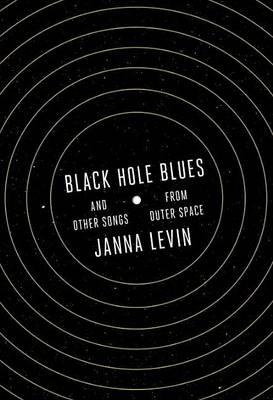Tag Black Hole Blues
On her literary blog Brain Pickings the incomparable Maria Popova writes: 1915 paper on general relativity, Albert Einstein envisioned gravitational waves — ripples in the fabric of space-time caused by astronomic events of astronomical energy. Although fundamental to our understanding of the universe, gravitational waves were a purely theoretical construct for him. He lived in an era when any human-made tool for detecting something this faraway was simply unimaginable, even by the greatest living genius, and many of the cosmic objects capable of producing such tremendous tumult — black holes, for instance — were yet to be discovered.
One September morning in 2015, almost exactly a century after Einstein published his famous paper, scientists turned his mathematical dream into a tangible reality — or, rather, an audible one. In Black Hole Blues and Other Songs from Outer Space — one of the finest and most beautifully written books I’ve ever read — astrophysicist and novelist Janna Levin tells the story of LIGO and its larger significance as a feat of science and the human spirit. Levin, a writer who bends language with effortless might and uses it not only as an instrument of thought but also as a Petri dish for emotional nuance, probes deep into the messy human psychology that animated these brilliant and flawed scientists as they persevered in this ambitious quest against enormous personal, political, and practical odds.
